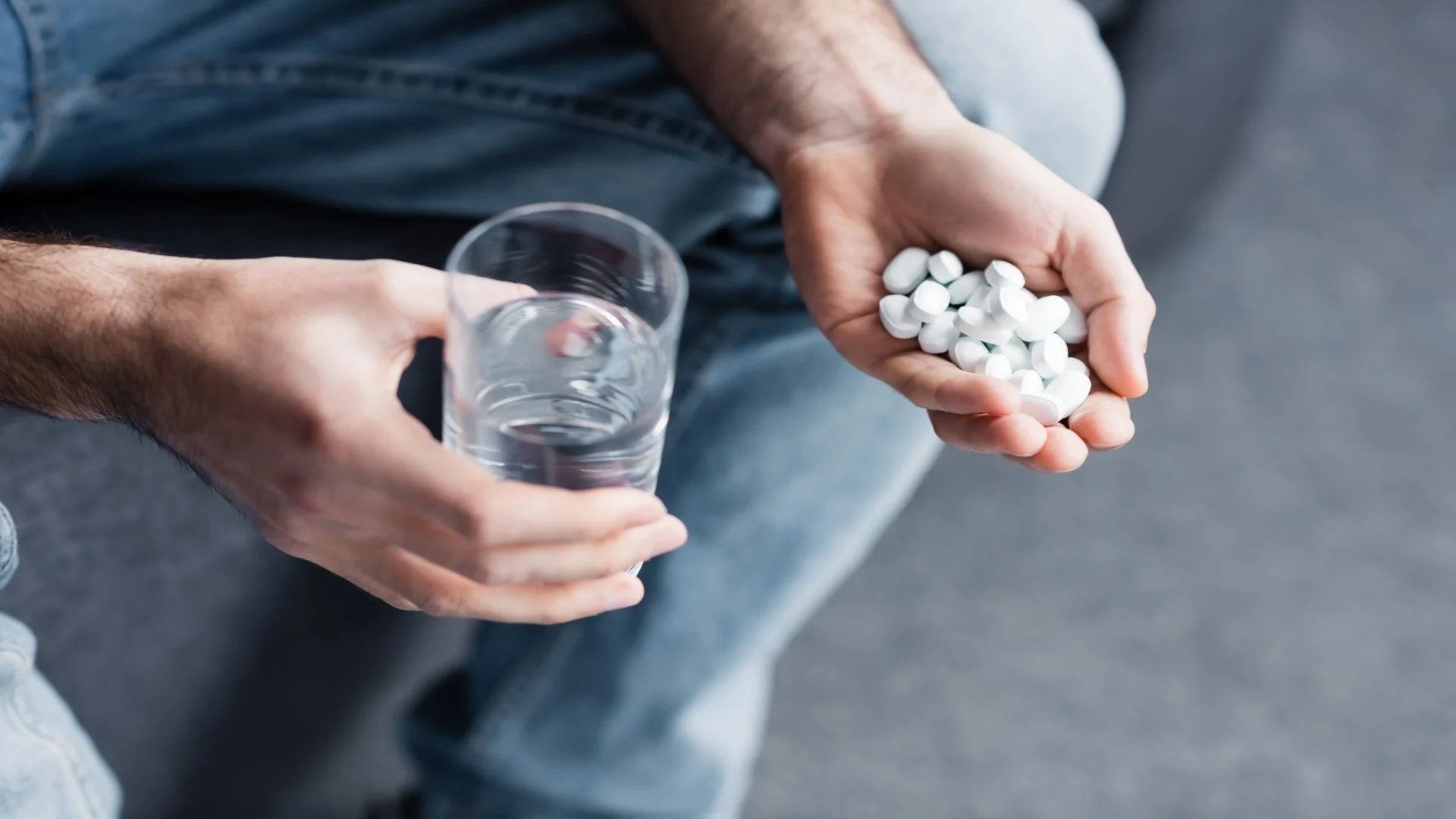Drug and Alcohol - Addiction Recovery
How Long Does Valium Last? Understanding Its Effects, Risks, and Role in Addiction Recovery

How long does Valium last? Learn about its duration, effects on the body, potential risks, and how it fits into addiction recovery and safe medical use.
How long does Valium stay in your system?
Valium stays detectable in saliva for up to 10 days, in urine for several weeks, and in hair for up to 90 days. These detection windows vary based on dosage, frequency of use, metabolism, and individual health factors, such as liver function.
What factors influence how long Valium lasts?
The duration of Valium varies with age, liver and kidney function, dosage, body fat percentage, and frequency of use. Older adults and those with slower metabolism or organ impairment tend to retain the drug longer, increasing its effects and time in the system.
Can Valium cause addiction?
Yes, Valium can lead to addiction, especially with long-term use. Dependence may develop within weeks, and users often require more to feel the same effects. Misuse increases the risk of addiction, especially when combined with alcohol or other central nervous system depressants.
How should I stop Valium safely?
Valium should be stopped gradually under medical supervision. Tapering the dose over weeks or months helps avoid severe withdrawal symptoms like anxiety, tremors, and seizures. Sudden discontinuation is dangerous and should never be attempted without professional guidance and monitoring.
How does The Edge Treatment Center help with Valium misuse?
We provide personalized, medically supervised tapering plans for Valium misuse. Our approach includes individual therapy, mental health support, and relapse prevention to support long-term recovery. At The Edge Treatment Center, we offer comprehensive care tailored to your needs at every stage.
If you or someone you care about has been prescribed Valium, understanding how it works is important, especially when misuse or dependency is a concern. One common question is, How long does Valium last? This benzodiazepine can stay in your system for hours or even days, affecting both your body and mind. While it’s often used to manage anxiety, muscle spasms, or seizures, Valium also carries a risk of dependence with prolonged use. This article explores how long its effects last, potential risks, and how Valium plays a role in addiction recovery and responsible treatment.
What Is Valium?

Valium, the brand name for diazepam, is a prescription medication belonging to the benzodiazepine class of drugs. It works by increasing the effects of gamma-aminobutyric acid (GABA), a neurotransmitter that slows brain activity. This leads to a calming effect on the nervous system.
How Valium Works and Feels
Valium typically begins to take effect within 15 to 60 minutes after oral administration. Its calming, sedative, and muscle-relaxant effects can last for several hours. Many users report feeling relaxed, drowsy, or physically at ease. These effects make it suitable for managing acute anxiety or physical discomfort.
Common Medical Uses of Valium
Valium is prescribed for several medical conditions, including:
Muscle spasms
Seizures, often in combination with other medications
Alcohol withdrawal symptoms, such as agitation, tremors, and seizures
It may also be used to induce relaxation before medical procedures. While Valium can be effective, long-term use can lead to dependence, so it should always be taken under professional guidance.
Duration of Effects Vs. Time in the Body
Understanding how long Valium lasts involves looking at two things: how long its effects are felt and how long it remains in the body.
Active Effects
Valium’s calming and sedative effects typically last between 4 to 6 hours, although for some individuals, they may extend up to 12 hours. These effects depend on the person’s metabolism, dosage, and whether the drug is taken on an empty stomach or with food. Even when the noticeable effects wear off, Valium may still be active in the system, especially with repeated use.
Half-Life and Metabolism
Valium has a relatively long half-life, typically between 20 and 50 hours. This means it takes that long for the concentration of the drug in the blood to reduce by half. Valium is also broken down into active byproducts, such as desmethyldiazepam, which can remain in the body for up to 100 hours. This extended presence is one reason Valium is sometimes used for tapering people off shorter-acting benzodiazepines.
Detection Windows
Even after its calming effects are gone, Valium can still be detected in the body. Detection windows vary depending on the type of drug test:
Saliva: up to 7–10 days
Urine: up to several weeks
Hair: up to 90 days
These timelines can vary based on metabolism and the frequency of drug use.
Factors That Influence How Long Valium Lasts
Several factors affect how long Valium stays active or detectable:
Age: Older adults may metabolize it more slowly.
Body fat: Diazepam is fat-soluble and can accumulate in fatty tissues.
Liver and kidney function: Impaired function slows down the elimination process.
Dosage and frequency: Higher and more frequent doses extend the presence in the body.
Understanding these variables helps guide safe use and detox planning, especially during addiction treatment.

We’re Here To Help You Find Your Way
Would you like more information about mental health or drug addiction? Reach out today.
Potential Risks From Prolonged Use
While Valium can be helpful when used as prescribed, prolonged use carries serious risks, especially when not closely monitored by a medical professional.
Dependence and Tolerance
One of the primary concerns with long-term Valium use is physical dependence. This can develop within just a few weeks of regular use. As your body adapts to the drug, you may require higher doses to achieve the same calming effects—this is known as tolerance.
Over time, dependence can set in, making it difficult to stop using the drug without experiencing withdrawal. Studies show that nearly half of long-term Valium users may struggle with withdrawal symptoms once they try to reduce or stop the drug.
Withdrawal Risks
Withdrawal from Valium can be physically and emotionally challenging. Symptoms may begin within a few days of the last dose and can include anxiety, insomnia, tremors, irritability, muscle pain, and in severe cases, seizures.
These symptoms can persist for weeks or even months, and in some individuals, over a year. For this reason, medical supervision and gradual tapering are essential when discontinuing long-term Valium use.
Interactions and Overdose Concerns
Valium also poses serious risks when combined with other substances. Mixing Valium with alcohol, opioids, or other sedatives can dramatically increase the risk of respiratory depression, coma, and even death. These interactions are hazardous because they may not be immediately noticeable but can lead to life-threatening consequences.
At The Edge Treatment Center, we carefully assess these risks and provide a safe and supportive environment for individuals recovering from Valium dependence.
Valium in Addiction Recovery at The Edge Treatment Center
At The Edge Treatment Center, we believe recovery should be safe, supportive, and tailored to your needs. When it comes to Valium, our approach focuses on responsible, medically supervised use—especially for those dealing with dependence or using it to manage withdrawal symptoms. Our goal is always long-term recovery, not just short-term relief.
Safe, Medically Supervised Tapering
For individuals who have developed a dependence on Valium, abrupt discontinuation can be dangerous. That’s why we use a gradual tapering process, overseen by medical professionals, to help minimize withdrawal symptoms and reduce risks such as seizures or severe anxiety.
In some cases, we may carefully reintroduce Valium in controlled doses to stabilize you before beginning the tapering process. This method ensures your safety while setting the foundation for more profound healing.
Valium’s Role in Managing Acute Withdrawal
Valium is sometimes used short-term to help with acute withdrawal, particularly during alcohol detoxification. Its long half-life and calming effects make it effective at controlling tremors, agitation, and even life-threatening symptoms like seizures. At The Edge Treatment Center, we use Valium only when appropriate and only as a short-term tool during medically managed detox.
Once the immediate withdrawal symptoms are under control, we begin the transition to more sustainable forms of treatment. This includes discontinuing Valium use in favor of therapeutic, non-addictive strategies for long-term success.
Personalized Treatment Plans

No two individuals are the same, and neither are their paths to recovery. That’s why we create personalized treatment plans based on your history, needs, and goals. These plans often include:
Mental health counseling to address underlying issues like trauma or anxiety
Behavioral therapies to help you build healthier coping mechanisms
Relapse prevention strategies to support long-term sobriety
Peer and family support to help rebuild trust and accountability
Support That Lasts Beyond Detox
At The Edge Treatment Center, we don't just help you detox—we help you heal. From your first day with us, you're surrounded by professionals who care about your physical and emotional well-being. Whether you're recovering from Valium use or it's part of your withdrawal treatment plan, we're here to guide you every step of the way toward a life free from addiction.

We’ll Lead You to New Heights
Do you have more questions about mental health or drug addiction? Reach out.
Valium Use Becoming a Problem? We Can Help You Take Control
If you're concerned about how long Valium lasts or struggling with its long-term effects, you're not alone, and help is available. At The Edge Treatment Center, we specialize in supporting individuals through safe detox, personalized treatment, and lasting recovery.
Whether Valium was prescribed or misused, our team can guide you toward a healthier, drug-free future. You deserve support, healing, and hope—and we're here to provide all three. Reach out today and let us help you take the first step toward reclaiming your life. Recovery starts with a conversation.


We’re Here To Help You Find Your Way
If you or a loved one is struggling with addiction, there is hope. Our team can guide you on your journey to recovery. Call us today.
Written by
The Edge Treatment Center
Reviewed by
 Jeremy Arzt
Jeremy ArztChief Clinical Officer
Drug and Alcohol
Addiction Recovery
July 14, 2025
